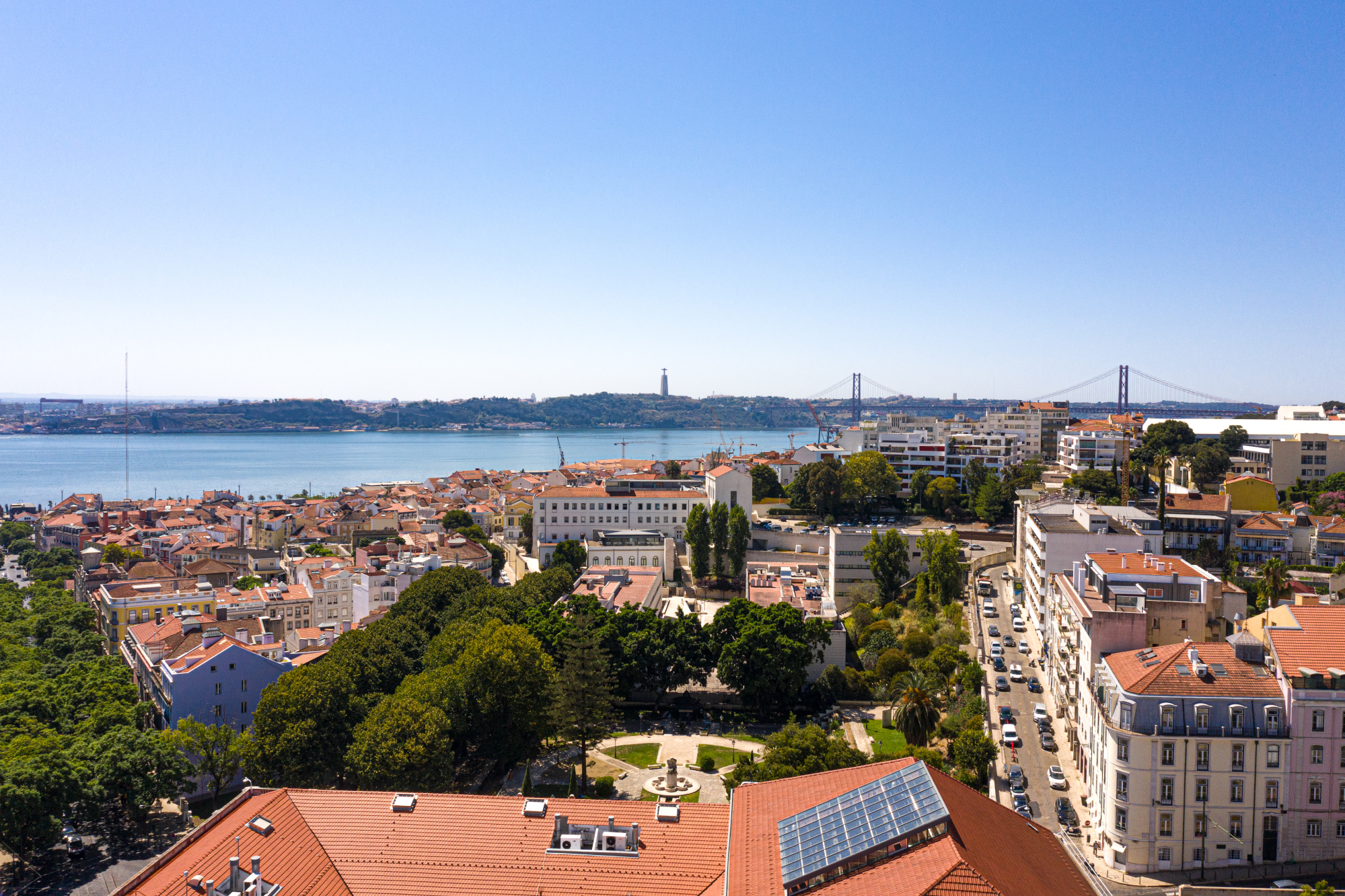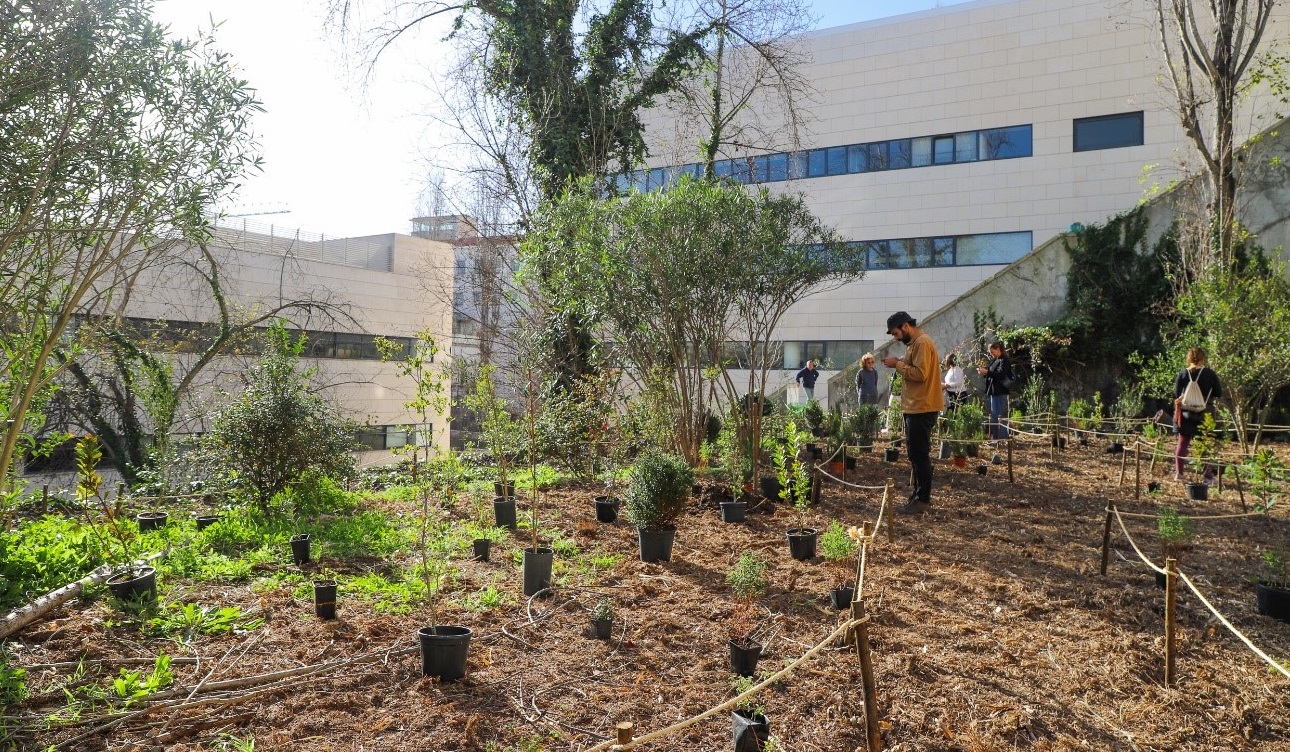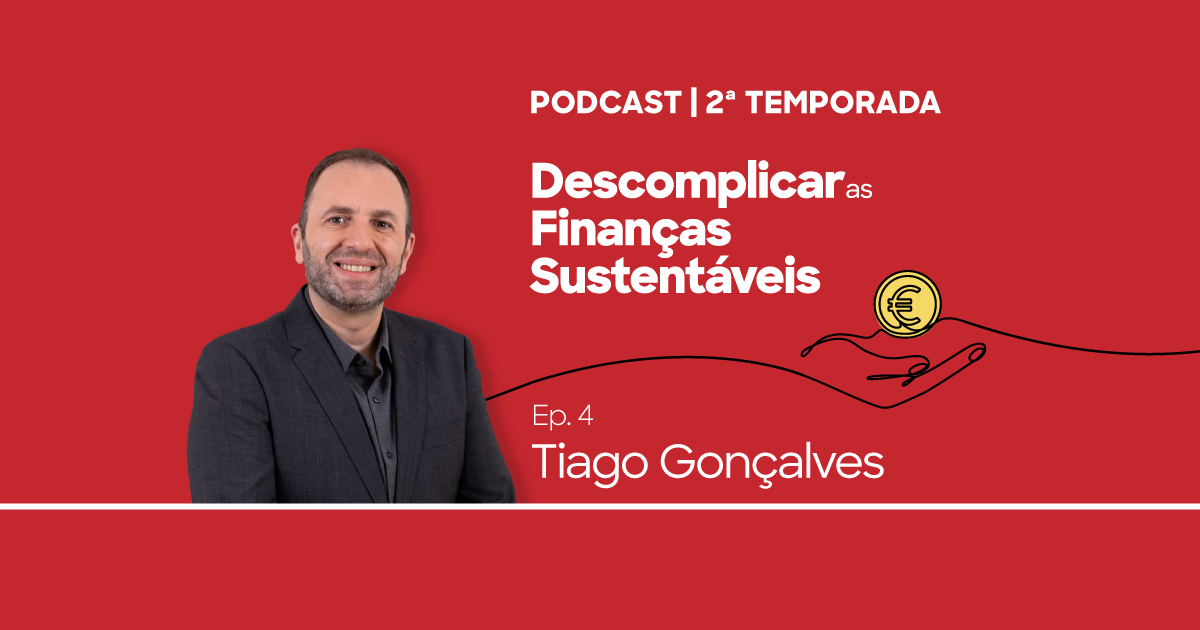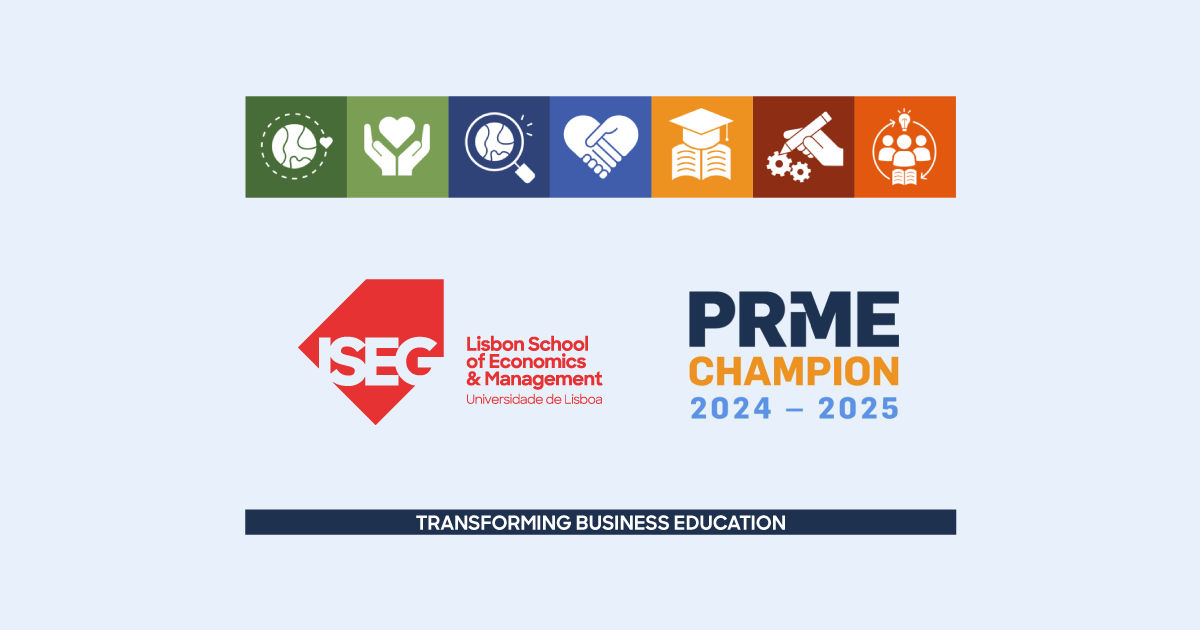Sustainability at ISEG


At ISEG, we recognise that the quality of life of future generations depends on how we deal with today's challenges. As part of our pluralistic approach, we promote a culture of solidarity and collaboration that helps drive sustainable development.
Sustainability at ISEG
ISEG integrates sustainability into all its main operations: research, education, campus and community / partnerships.

Sustainability in Education
Sustainability is integrated in several programmes offered by ISEG.
Find out more

Sustainability in Research
The research conducted at ISEG offers a wide variety of perspectives on the definition, categorisation and assessment of sustainability issues.
Find out more

Sustainability on Campus
The campus is like a living laboratory, to test and implement solutions that promote the sustainability and well-being of our community.
Find out more












